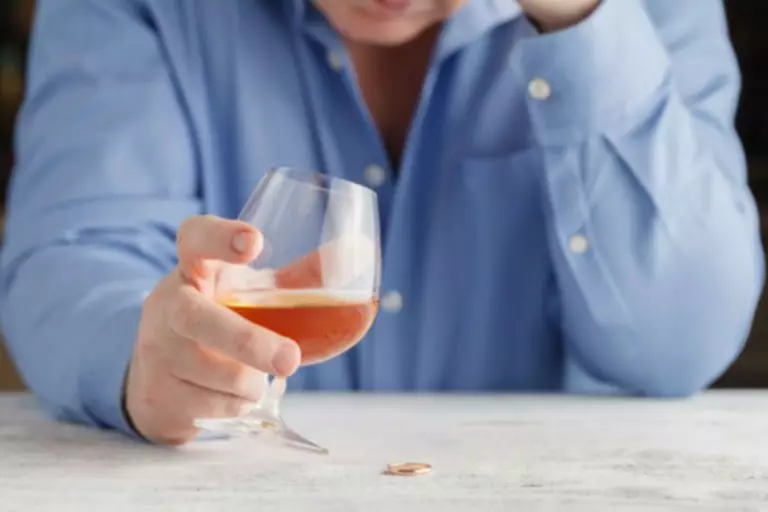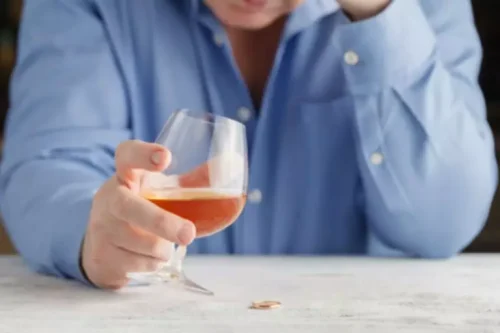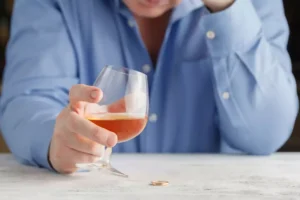
For those with a diagnosis of current alcohol dependence, the prevalence rate for an independent major depressive disorder was 20.5%. These alcohol-dependent individuals were 3.7 times more likely to have major depression than those without alcohol https://ecosoberhouse.com/ dependence. For those individuals with a current alcohol use disorder (abuse or dependence) who were seeking treatment, 40.7% had at least 1 current independent mood disorder.
Alcohol Addiction: Understanding the Cycle, Causes, and Treatment

But as you continue to drink, you become drowsy and have less control over your actions. Women are more than twice as likely to start drinking heavily if they have a history of depression. Experts say that women are more likely than men to overdo it when they’re down.
Symptoms and treatments
Perhaps depression undermines support as many people, when depressed, isolate, thereby reducing contact with social supports (Snowden, 2001). Additionally, intensity of alcohol use could be a confounding factor that varies depending on available social supports. It is also possible that heavier drinkers are more likely to be embedded in pro-drinking social support networks rather than sober networks and that positive network support for drinking undermines motivation to quit (Hunter-Reel, McCrady, Hildebrandt, & Epstein, 2010). In sum, social support might function independently of drinking behavior among people with HIV and HCV or even promote it. Experiencing both depression and AUD can be a difficult road, but recovery is possible.

Antidepressants and Alcohol
We have often recommended 90 meetings in 90 days and Vivitrol injections after detoxification from alcohol and for another three months, followed by re-evaluation and usually continued treatments. Integrating supervised naltrexone, disulfiram, or acamprosate with AA or treatment support is often more effective than either approach alone. Patients who are seen in clinical practice commonly have multiple problems, yet efficacy data often reflect treatment of a single illness. Thus, it is useful to know how standard treatment approaches need to be modified for comorbid disorders.
Alcohol use and depression symptoms
- People with depression are at increased risk of substance abuse and addiction.
- “Therapeutic interventions designed to address both issues often include a focus on addressing emotional pain or trauma, as well as developing and practicing healthy coping behaviors,” says Kennedy.
- People with AUD are 1.7 times more likely to have had PDD in the previous year.
- One study, including over 1500 people, found that prescribing medications based on the results of a 12-gene test significantly reduced side effects versus standard care guideline-based treatment.
For example, AUD that develops after the onset of a depressive disorder and is characterized by coping motives for alcohol use may differ critically from a depressive disorder that develops following chronic alcohol administration. Data from studies of depression indicate that the substantial variability in the symptoms presented reflects a heterogeneous pathophysiology,32 yet research on heterogeneity in co-occurring AUD and depressive disorders remains limited. Many randomized trials have investigated treatments for co-occurring AUD and depressive disorders. In this section, trials that used medication and psychotherapy treatments are discussed, as are the effects of those treatments on depressive symptoms and AUD symptoms.
Alcohol and Depression Treatment

Retirement comes with many changes that can challenge a person’s mental health, researchers said; loss of the identity that comes with work, financial problems, changes to routine, and less social connectedness among them. Results show that retirees suffer more depressive symptoms than people who are still on the job, researchers said. Sometimes it’s difficult to determine the cause-and-effect dynamic between alcohol and depression. Stephanie Robilio is an accomplished Clinical Director at Agape Behavioral Healthcare. With a Master of Social Work degree, LCSW license, does alcohol make depression worse and extensive training in Rapid Resolution Therapy under her belt, she brings a wealth of expertise to her role. Her unique combination of education and experience allows her to provide exceptional care to clients and lead her team with confidence.
- Alcohol can significantly impact the levels of neurotransmitters in your brain, making depression worse.
- However, it is often difficult to distinguish a substance-induced depression from major depression in the presence of alcohol dependence because the clinical symptoms of a substance-induced depression can appear identical to those seen in major depression.
- It blocks metabolizing of alcohol, inducing copious vomiting if any alcohol is consumed.
- Because AUD medication adherence is poor, one alternative is to give long-acting injectable naltrexone once a month or to organize a supervised medication administration program for patients.
Register for an enhanced, personalized experience.
In addition, most alcohol abuse programs allow patients to discuss their alcohol abuse issues with others in a group therapy format. Since people in group therapy sessions give people who are experiencing similar issues to discuss and overcome their issues together, this a great option or opportunity for people Alcoholics Anonymous who are facing both alcohol abuse and depression. Overall, it is extremely difficult to handle and properly treat alcoholism and depression.
